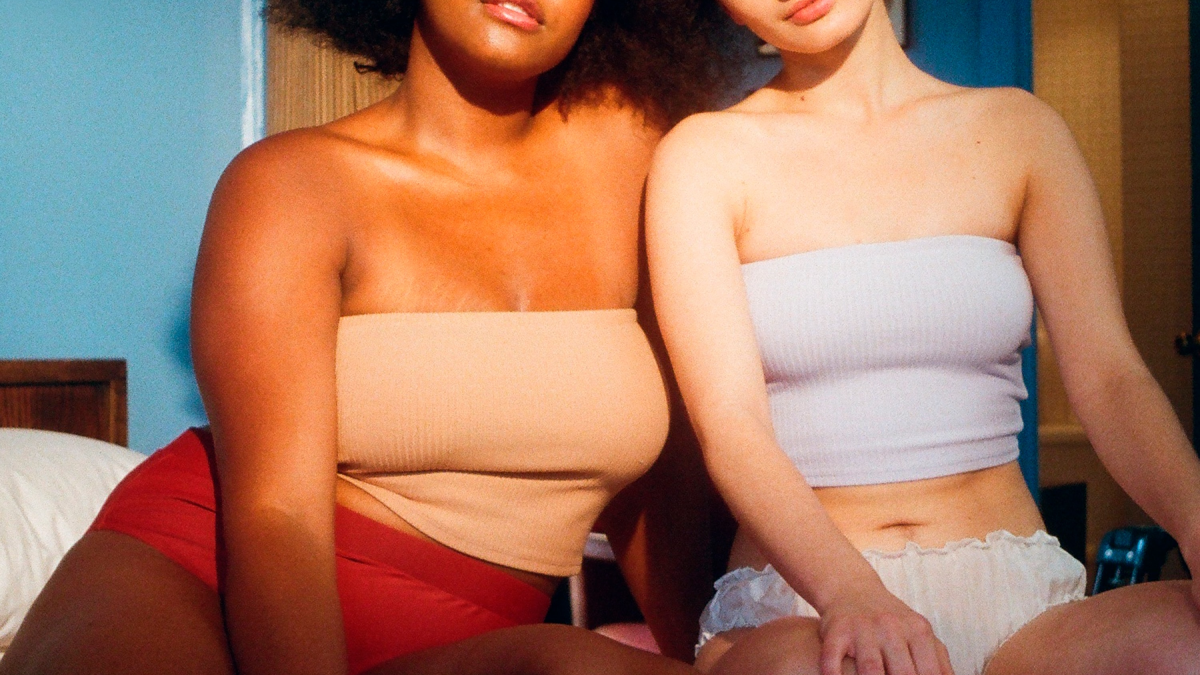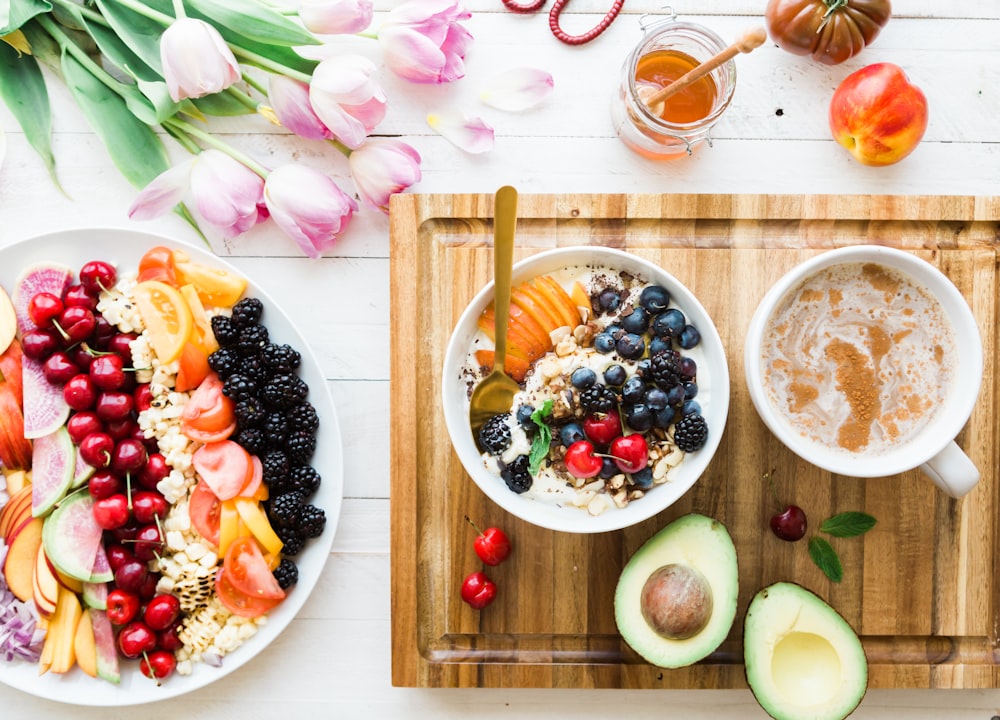
What is body positivity? It’s a term you might have heard before – however, it’s also one frequently met with confusion.
Body positivity refers to the idea that everyone deserves to have a positive body image. Regardless of your size, your body shape, or even the views of the people around you, you always deserve to be confident and happy in your own skin.
We live in a world where body positivity is very difficult to achieve. The media, the online comparisons, and the communities we live in can shape the idea that only certain body types are acceptable. This often leads to some serious problems with self-esteem and mental health, as the reality is there is no one-size-fits-all for body types. Everyone’s body is unique.
So, how can you embrace body positivity, develop more confidence when it comes to your body, own who you are and overcome the haters?
What is Body Positivity? Defining Positive and Negative Body Images

Body positivity requires people to look beyond the expectations and opinions of society. While we all have our own idea of what the “perfect” body looks like, body positivity teaches us to be happy with who we are – wobbly parts and all.
Having a positive body image doesn’t mean you ignore your summer workouts or give in to your sugar addiction without a care. Despite what some nay-sayers believe, body positivity is not an excuse to fail to look after yourself or let yourself go; it’s merely about making an effort to love all of yourself – no matter what.
People with a positive body image:
- Understand and appreciate the limitations and abilities of their body
- Have a broad concept of beauty and what it can mean
- Do not subscribe to media standards of beauty
- You feel comfortable in your own skin
- Do not look to others to accept their body type
- Are comfortable making their own decisions about their body
Body positivity movements aim to reduce the pressure that media messages place on people today. These movements can also support us in being true to ourselves. Body positivity doesn’t just mean embracing your weight or shape; it can also mean loving your slightly crooked nose or having the confidence to wear the clothes you love even if they don’t hide your imperfections.
Used correctly, body positivity can even help reduce obesity and support people in reaching their health and fitness goals.
On the other hand, a negative body image is defined by crippling self-esteem issues, feelings of shame and embarrassment, awkwardness, discomfort, or even self-loathing.
Negative Body Image and Body Shaming
Having a negative body image can result in the development of mental health issues, such as depression and social anxiety in some cases. More often than not, the problems stem from comparing ourselves to others or feeling inadequate based on what we see in the media.
In very severe circumstances, a negative body image could even lead to unsafe weight loss habits (like crash dieting or eating disorders), inappropriate use of medication, or even the decision to undergo surgery.
Negative body images are often made worse by “body shaming.” Body shaming can manifest in a range of ways. Sometimes, we do it to ourselves. We criticise something we don’t like when we look in the mirror, or even negatively comparing our appearance to someone else.
Other times, it’s the people around us that perpetuate negative body images. This is done either deliberately (“You’ll never get a date with those thighs”), or indirectly, (“Imagine how great it would be if you had a waistline like Angelina Jolie’s”).
Research has already found that body shaming can lead to serious consequences, including an increased risk of eating disorders. The problem has emerged as such an issue throughout the world. So much so that the UK major prohibited the London transport systems from showing ads that might promote negative body image.
How Body Positivity Impacts Our Lives

Body positivity and body shaming have direct impacts on our quality of life.
If you’re constantly comparing your body to others at the gym, and feeling inferior in comparison, you’re more likely to avoid working out in public. You might even put your fitness regime entirely on hold or give up on your weight loss goals.
If you’re uncomfortable about how you look in a bikini, you might avoid going swimming, hide away from the pool, or cover yourself in clothes so you’re more likely to overheat when out and about.
Some people even avoid or don’t enjoy vacations because of their negative body image.
Your body positivity issues can also influence your sex life. It’s difficult to let loose and have fun in bed (or anywhere else), if you’re worried about what someone thinks when they see you naked.
Body positivity movements, in the form of motivational quotes and hashtags on social media, advertising campaigns, and global events, aim to help all people break free of the restrictions we place on ourselves for how we “should” look.
As Caroline Caldwell once said: “In a society that profits from your self-doubt, liking yourself is a rebellious act.”
Why Body Positivity is Important

Body positivity encourages you to be yourself, and love who you are, no matter what others think.
This doesn’t mean letting yourself go or ignoring your nutritional needs. Instead, it means being realistic about what your “perfect body” should really be. Body positivity fosters crucial magnitudes of self-love and helps us to overcome the crippling self-doubt caused by the media.
While most of us probably won’t be able to overcome our self-confidence issues overnight, we should all be working harder to give these negative ideas less control over our lives. When we start ruminating on our perceived (often imagined) flaws, our desire to be thinner, curvier, shorter, taller, or anything else can seriously harm our wellbeing.
Body positivity is crucial because it:
- Cultivates self-acceptance: If you don’t like your love-handles, you can work out, but you should be able to choose to lose weight, or change parts of your body based on your own preferences, not preconceived conceptions decided by a larger social group.
- Improves mental health: Mental health problems are rife in today’s world, and they’re perpetuated by body shaming, social media, and a feeling that we’re all constantly under observation. Learn to love yourself, and you’ll be happier every day.
- Challenges social norms: We should all be standing up and fighting against the concept that there’s one “ideal” body type. The DNA tests prove it – we’re all very different, with our own strengths and weaknesses. We should all be free to be ourselves.
- Allows for realistic goal setting: When you stop holding yourself to other people’s standards, you can start thinking about what you want to achieve in terms of health and fitness. This makes it easier to set realistic goals.
How to Improve Body Positivity

There’s no one-size-fits-all strategy for overcoming the issues you might have with your self-image. For a lot of us, getting comfortable with ourselves takes time, patience, learning and kindness. However, there are a few things you can do to improve your chances of success:
Learn More About You:
Get a DNA test and learn more about your body type, what makes you different, and how you need to look after yourself to be as happy as healthy as possible. You can order your CircleDNA test here and learn all about your body type.
Remember That Everyone is Attracted to Different Body Types:
There are definitely people out there who are very attracted to your body, just the way it is.
Surround Yourself With the Right People:
Get rid of the body-shaming nay-sayers in your life. Instead, surround yourself with positive people. Start blocking out and challenging the negative comments or ideas you might encounter.
Practice Positive Self-talk:
Start complimenting yourself more often. Every day, find something about yourself that you love and focus on that.
Stop Comparisons:
You’re not the same as anyone else. Stop comparing yourself to other people, whether they’re celebrities, or friends and loved ones. Remind yourself there’s only one you!
Be Critical of Media Messages:
Don’t focus on any media messages that make you feel as though you’re not good enough. What the media states is beautiful may not be your truth or many other people’s truth. It, therefore, isn’t the truth
Touch-up Pictures:
Remember that many “perfect bodies” have been heavily edited. Apps such as FaceTune help people edit their photos to look thinner, have fuller lips, etc. Know that the supposedly flawless bodies you see online might have been fabricated.
See the Whole You:
Stop focusing on one imperfect thing you don’t like about yourself. See yourself as a whole person, full of passion and beauty.
Do Nice Things for Yourself:
Wear clothes that make you feel and look good. Get a haircut, dye your hair a fun colour, get a massage, or buy some new shoes.
Aim for Healthy:
If you decide to make a change to your lifestyle, focus on getting healthy. Not getting “thin.” Everything you do should be for your own well-being.
Start Loving Yourself

It takes time to overcome a negative self-image, but you can get there.
Remind yourself that the people who post pictures of themselves on Instagram looking flawless usually aren’t that perfect in real life. Notice that countless images of celebrities and athletes online and in magazines are airbrushed to eliminate every potential flaw. Remind yourself that you may not be seeing the whole picture.
At the same time, work on loving yourself a little more. It’s worth checking out some of the body-positive influencers out there on Instagram and other social channels if you can. Some of the best body positivity role models and influencers are:
You’re one of a kind and beautiful just the way you are. Keep practising body positivity and self-love.







Comments are closed.